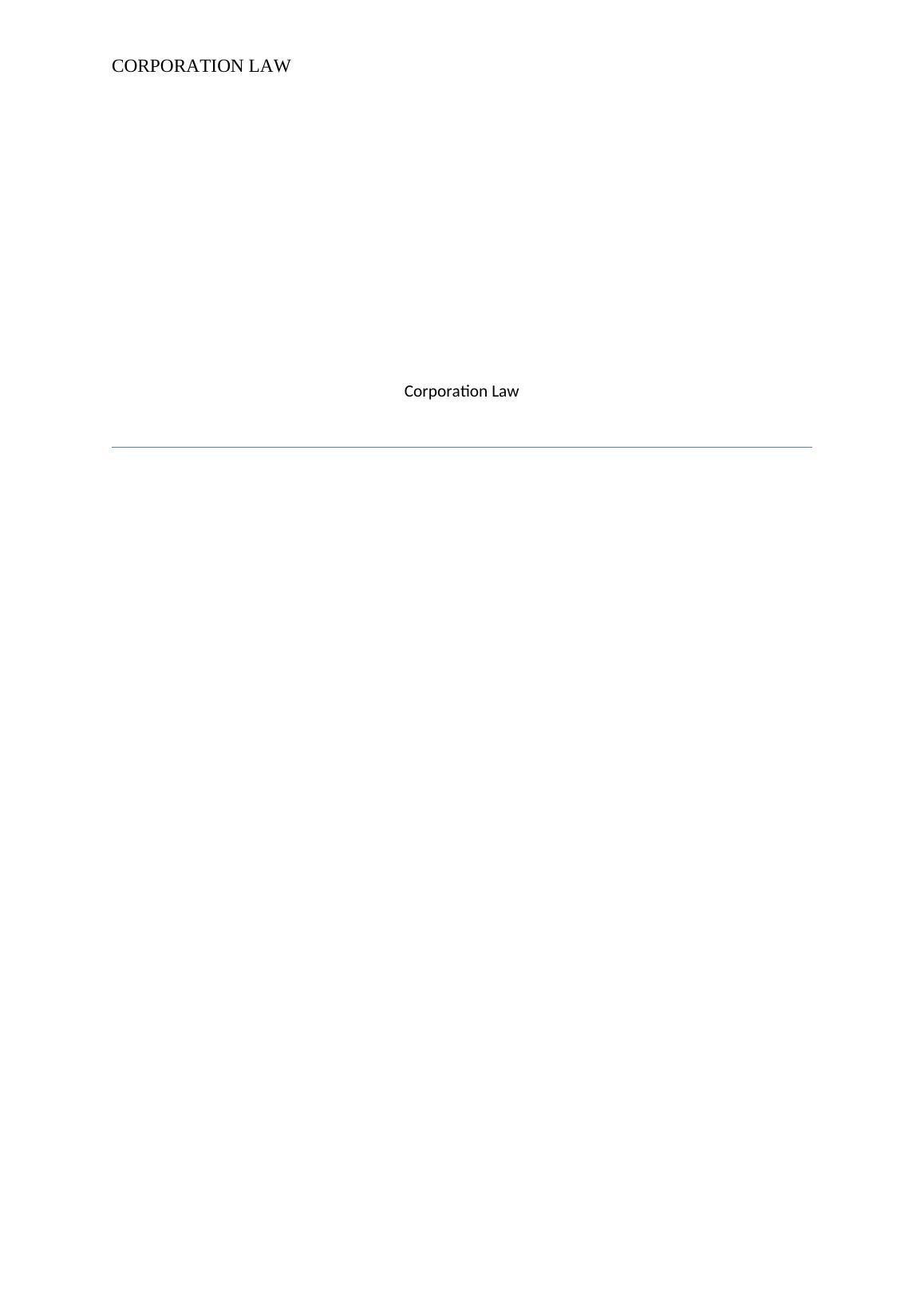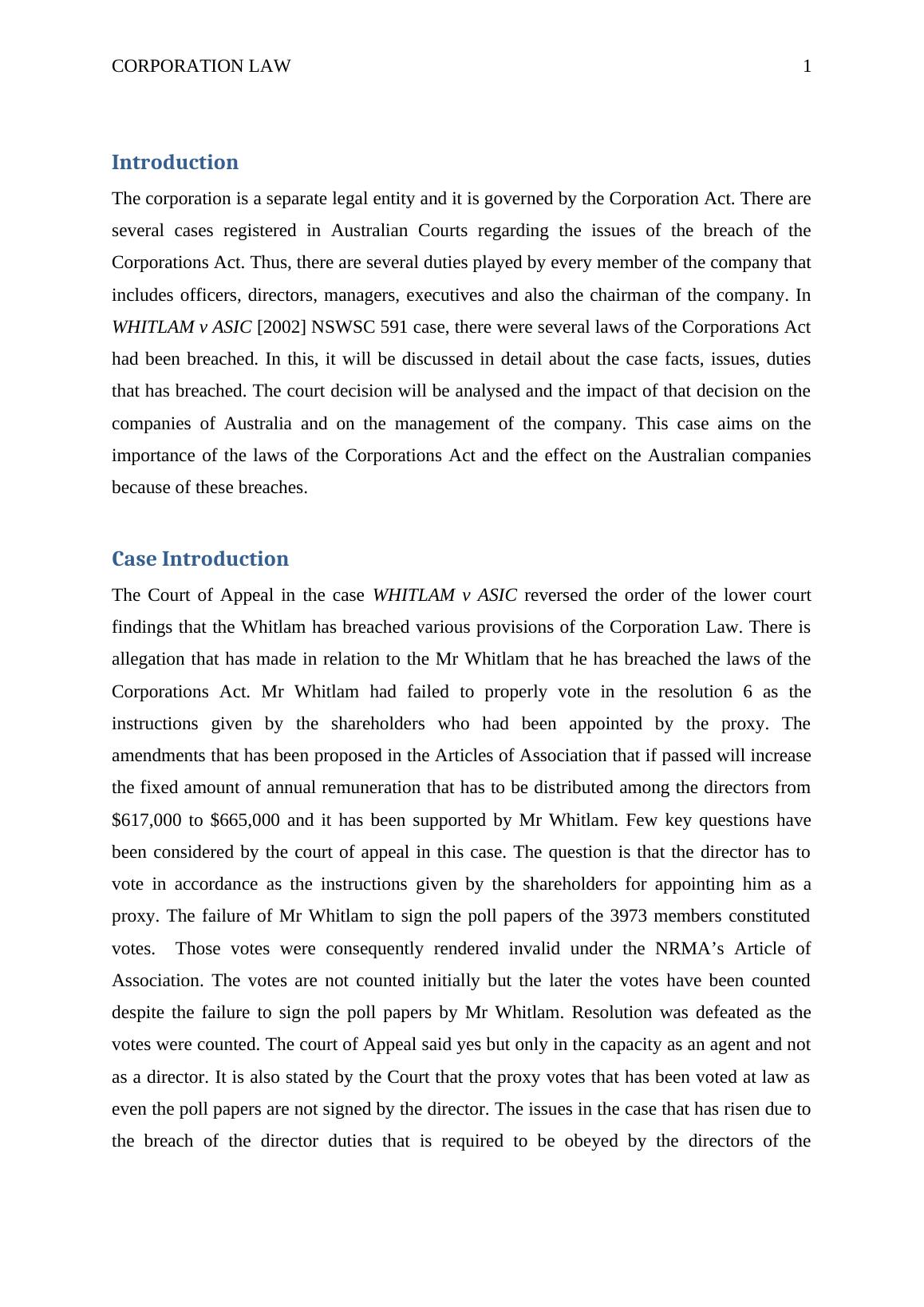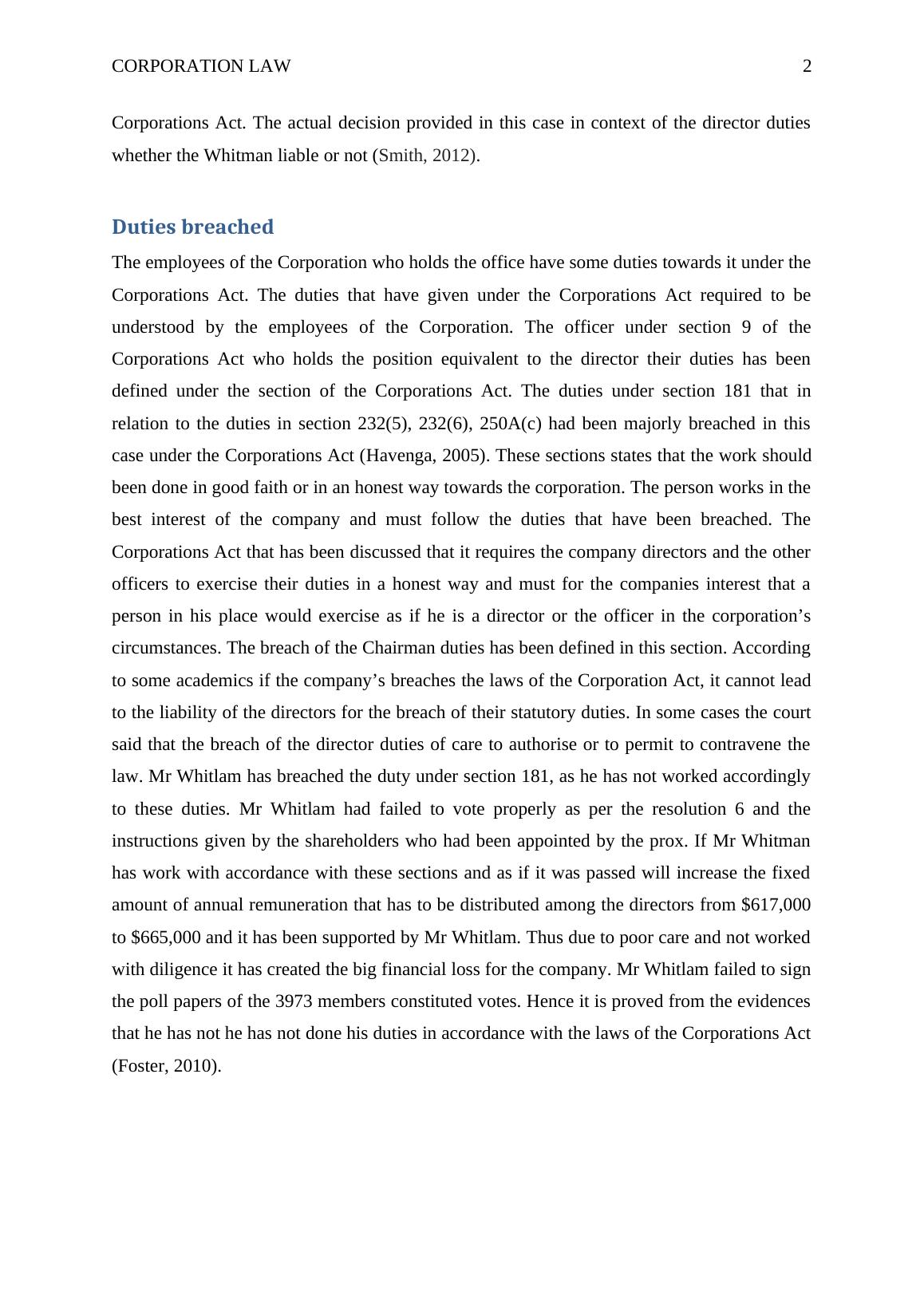WHITLAM v ASIC: Breach of Director Duties under Corporations Act
7 Pages2416 Words223 Views
Added on 2023-06-07
About This Document
The case of WHITLAM v ASIC discusses the breach of director duties under the Corporations Act. The court decision impacted the governance of Australian companies and led to the implementation of policies to improve ethical and good governance culture. The duties breached include sections 181, 232(5), 232(6), 250A(c). The court decision found that Mr Whitlam breached some of the laws of the Corporations Act. However, the Court of Appeal reversed the order but still left some possibility that Mr Whitlam deliberately did not sign the poll papers.
WHITLAM v ASIC: Breach of Director Duties under Corporations Act
Added on 2023-06-07
ShareRelated Documents
End of preview
Want to access all the pages? Upload your documents or become a member.
ASIC v Whitlam: A Case Study on Director Duties under the Corporations Act 2001
|17
|1207
|331
Corporations Law : Assignment
|10
|2633
|108
ASIC v Whitlam: Breach of Director Duties in Australia
|10
|2561
|447
Analysis of ASIC v Whitlam Case: Breach of Directors' Duties
|8
|2220
|112
Breach of Director Duties under Corporations Act: Case of Mr Gonzo
|3
|699
|430
Analysis of ASIC v Vines Case: Breach of Director's Duties and Impact on Australian Companies
|3
|1226
|482



